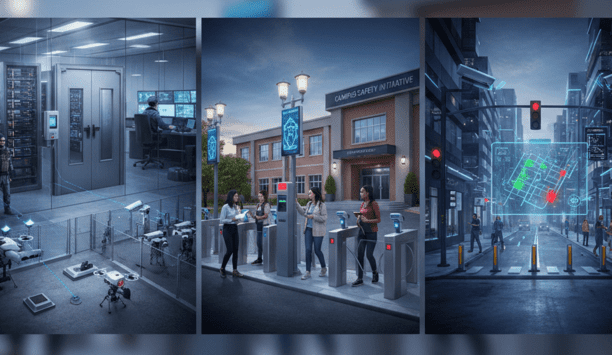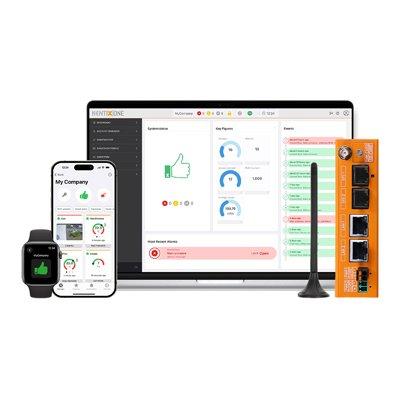 |
| Counter Terror Expo will provide a forum for key industry players to interact and learn about new technologies |
The threats to maritime security from piracy, terrorism and political crises are increasing and ever evolving. New solutions and shared actions are required to protect ships, shipping routes, ports and harbours – indeed, our entire international supply chain. In recognition of this disturbing reality, Counter Terror Expo 2014, the largest international counter terrorism and security event of its kind, will be focusing on both the threats and the possible solutions in a dedicated Maritime Security/Maritime Counter Terrorism Zone.
In short, this Zone will be fulfilling a critical function in providing a forum for key industry players to interact, engage in the debate and learn about new technologies as well as promote the innovative products and services their companies have to offer.
A large number of organisations have already committed to exhibiting within the Zone and contributing to its workshops; and many of their comments reveal just how vital the issues are and just how alive the debate around maritime security promises to be.
Steven Jones, Maritime Director of The Security Association for the Maritime Industry (SAMI), one of Counter Terror Expo 2014’s industry partners, commented: “The key issues are ensuring that maritime security remains on the shipping industry agenda, and that the successes against Somali pirates do not lead to complacency and a collective dropping of our collective guard. Elsewhere, issues such as West African security, crime, ports, stowaways and cyber-attacks are likely to be key developments in 2014.”
For Kate Jacobs, Marketing Manager of Alford Technologies, specialists in countering the threat of IEDs as well as Conventional Munitions Disposal, “one of the key issues in maritime security at the moment – which has been an ongoing need over the years and will continue to be for years to come – is the need to ensure main shipping routes remain clear to support trade activities. There are a number of critical choke points around the world which are vital for many nations’ economies and trade; and it is essential for maritime security professionals to employ the right measures to keep these open and free from terrorist activity.”
This need to protect global trade routes was echoed by Chris Garrett, responsible for Technical Sales at specialist ascent and descent equipment providers, Olympia Triumph. In his view, the key maritime security issue at present is “providing safe transit of products and materials throughout the shipping lanes”.
"There are a number of critical |
Providing direct physical protection for ships against direct attack is very much the concern of Claire Hemmings, CEO of Exsel Engineering, specialist providers of a wide range of ballistic protection solutions for vessels of all types. She commented: “The provision and use of ballistic protective shields for tactical maritime boarding teams is a huge issue affecting Maritime Security. When police officers and military operatives conduct tactical search and arrest operations on land they invariably use ballistic protection shields. However, for maritime CT operations the operatives are often required to board the ship using ladders or fast ropes from helicopters. Having an effective lightweight portable ballistic protection system, along with highly developed tactics, techniques and procedures, is essential to enabling an effective capability and therefore maximising force protection for operators when conducting operations in the maritime environment.”
Of course, procedures can only be effective if the right people are available to implement them, and in the view of Brad Lawrence MIExpE from consultancy, research and bespoke training provider Explosive Learning Solutions, “the generally poor standard of personnel security vetting across the maritime sector remains a serious concern – other efforts to tighten maritime security may be compromised if this key issue is not robustly addressed.”
Building on the success of 2013, the first year a dedicated Maritime Security Zone was established at Counter Terror Expo, this year’s event will provide visitors with direct access to maritime industry leaders, decision-makers from naval forces, and experts from some of those countries most deeply involved in the security of the high seas. In other words, this is an event you will not want to miss if you are involved in any of the following areas of maritime security:
- Anti- piracy services (including special ops equipment)
- Command and information systems
- Crisis management services (including hostage negotiation training)
- High risk shore-end cable–lay
- Maritime border and cargo security equipment
- On-shore marine intelligence
- Radar & sonar detection
- Sensors and communication systems
- Ship security assessment services
- Surveillance and security systems
- Underwater security equipment (including pipeline protection)
- Unexploded ordnance disposal
In addition to those organisations whose spokespeople have been quoted above, all of the following organisations will also be exhibiting within the Maritime Security/Maritime Counter Terrorism Zone at Counter Terror Expo 2014:
- 5 Stones Intelligence
- Blok N Mesh UK
- Dytecna
- Exsel Engineering
- Geometrics
- Kelvin Hughes
- MAS Zengrange
- Primetake
- Steelway Fensecure
- Zodiac Milpro UK
Philip Hunter, Event Director, Clarion Defence & Security commented: “If you’re involved in maritime security, in whatever capacity, the Maritime Security/Maritime Counter Terrorism Zone at Counter Terror Expo 2014 will give you an unrivalled opportunity to stay at the forefront of all the latest developments.”
Stay ahead of the trends on securing physical access control systems through layered cybersecurity practices.






















